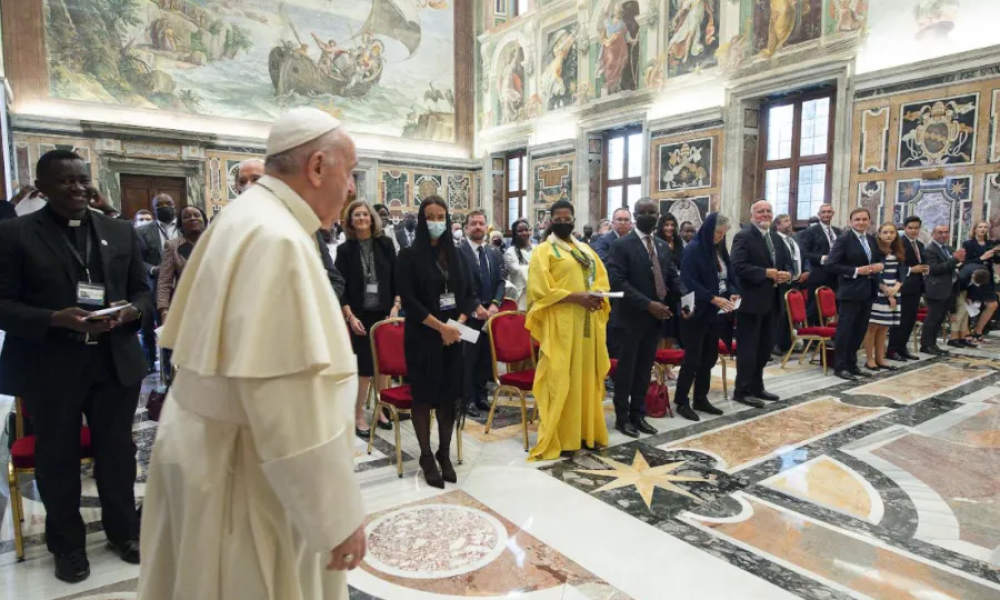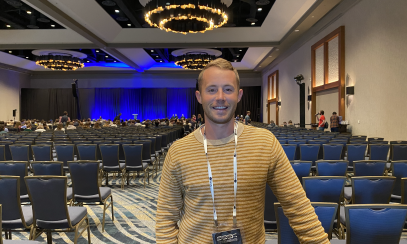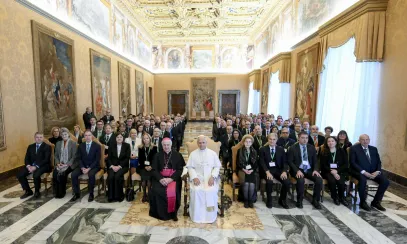
Pope Francis Urges Catholic Lawmakers to Protect Human Dignity Online
August 27, 2021 (CNA) - Pope Francis urged Catholic lawmakers Friday to protect human dignity online by using public policy to combat child pornography, data breaches, and cyberattacks.
“In our age particularly, one of the greatest challenges confronting us is the administration of technology for the common good,” Pope Francis said in the Apostolic Palace on Aug. 27.
“By means of policies and regulations, lawmakers can protect human dignity from whatever may threaten it. I think, for example, of the scourge of child pornography, the misuse of personal data, attacks on critical infrastructures such as hospitals, and the spread of false information on social media and so on,” he said.
Speaking to the International Catholic Legislators Network, the pope encouraged the politicians to “make every effort to undertake serious and in-depth moral reflection on the risks and possibilities associated with scientific and technological advances.”
Pope Francis said that moral reflection on technology would help ensure that laws and regulations focus on “promoting integral human development rather than progress as an end in itself.”
“The wonders of modern science and technology have increased our quality of life,” he said. “At the same time, left to themselves and to market forces alone, without suitable guidelines provided by legislative assemblies and public authorities guided by a sense of social responsibility, these innovations can end up becoming a threat to the dignity of the human person.”
The International Catholic Legislators Network is a group of Catholic parliamentarians from around the world that holds an annual private meeting in Rome.
The group, founded in 2010 by the Austrian Cardinal Christoph Schönborn and David Alton, a member of Britain’s House of Lords, is dedicated to religious liberty, Church-state relations, the protection of life, and communicating Catholic thought in secular politics.
“Your work as lawmakers and political leaders is more important than ever. Charged with serving the common good, you are now being challenged to direct your efforts to the integral renewal of your communities and of society as a whole,” Pope Francis said.
“This entails more than simply combating the virus or seeking to return to the status quo prior to the pandemic -- no, that would be a failure -- it demands confronting the deeper causes that the crisis has laid bare and aggravated: poverty, social inequality, widespread unemployment, and the lack of access to education.”
Among those present at the papal audience were Christiaan Alting von Geusau, president and rector of the International Theological Institute in Vienna, Cardinal Schönborn, and Patriarch Ignatius Aphrem II of the Syriac Orthodox Church.
“In an age of upheaval and political polarization, legislators and politicians in general are not always held in high esteem,” the pope said. “Yet what loftier vocation can there be than that of serving the common good and placing the welfare of the community before our personal advantage?”
“If we are to heal our world so harshly tried by the pandemic, and build a more inclusive and sustainable future in which technology serves human needs without isolating us from one another, we need not only responsible citizens, but also capable leaders inspired by the principle of the common good,” Pope Francis said.



